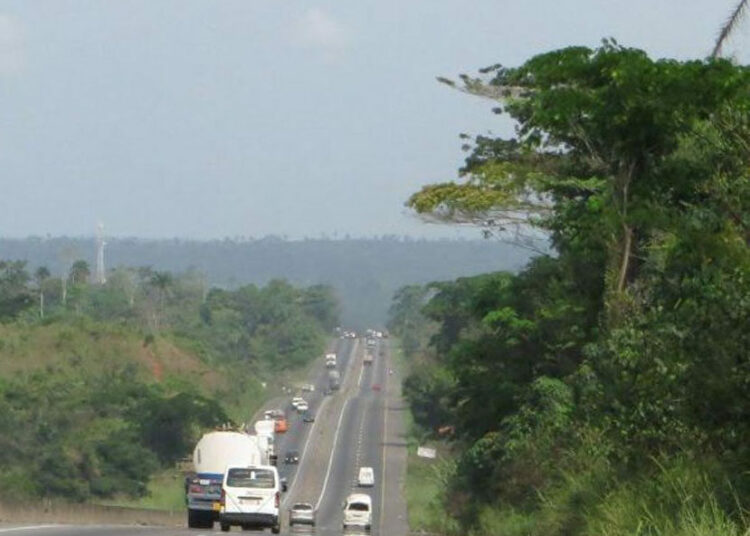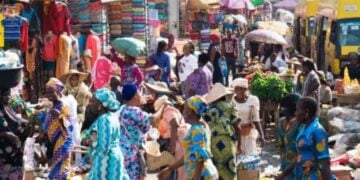Angry motorists and passengers, especially traders commuting between Akwa Ibom and the neighbouring Aba, Abia State, for routine businesses, have decried alleged extortion by security agencies.
They complained that the short stretch of the Ikot Ekpene-Aba interstate highway has been overwhelmed with 20 checkpoints from Ikot Ekpene, Essien Udim to Opobo junction, peripheral to Aba North. The passengers, mostly traders, disembarked at various spots, especially Ariaria International Market, to shop their wares for onward retail at Ikot Ekpene, Uyo, and other locations in Akwa Ibom.
“Ordinary, the journey that would have lasted about 45 minutes from Uyo, the state capital, would be become lull at the portions between Ikot Ekpene and Aba, because of numerous checkpoints, where security agencies and the local toll collectors extort drivers at random,” Emmanuel Etim, a dealer in used clothes at Ibom plaza, Uyo, lamented.
Emma, as he is popularly called, who hails from Nsit Atai local government area of Akwa Ibom State, regretted that “most of what we earn as profits are taken over by extra levies imposed on us by the drivers who usually bear the brunt of extortion at all the checkpoints before crossing into Akwa Ibom.”
Our correspondent check revealed that armed soldiers, policemen, National Drug Law Enforcement Agency (NDLEA) and the local toll collectors from the villages dot the highway.
It was gathered that while the commercial buses and taxis have a fixed toll of between N200 and N500 per checkpoint, long haul trucks and other articulated vehicles pay much higher, at N1,000 and above, depending on the nature of your cargo.
“Every day we spend about N3,000 to N5,000 as toll just between Ikot Ekpene here and Aba, which is just about 20 minutes drive if the checkpoints were not there. And, if you add this to the manhour lost, the turnover is seriously affected,” a commercial bus operator, who identified himself as Agumba, lamented.
At every point, it appeared the drivers already knew how much to slip into the outstretched hands of every bribe – taker as tips for plying the highway dualised only from the Essien Udim portion and dotted with speed bumps to retrain speeding motorists from escaping the toll collection points, our correspondent noted.
And commensurately, the illegal levies imposed on the vehicles and goods coming from major commercial centres like Lagos, Onitsha and Aba, it was gathered, have combined to exacerbate prices of essential goods including fabrics, secondhand products and livestock, especially cattle, goats and rams coming into Akwa Ibom from Northern Nigeria.
At Itam International Market in Itu LGA, close to Uyo, the state capital, it was gathered that though the prices of major staples, including garri, beans, rice, potato, and onions, have dropped significantly, the prices of various meats—pork, dog, beef, and goat—remain astronomically high.
“We pay too much tolls ferrying these animals from the North down South”, Adamu Illiasu, a cattle dealer at Nassarawa livestock market at Itam, explained.
“The most painful one is the illegal levies we are forced to pay just between Aba and Ikot Ekpene at various points before migrating towards Uyo,” he added.
Another livestock dealer, Abubakar Isa, at the Hausa/Fulani settlement along Eka Street, Uyo, expressed the same lamentation, saying “the multiple taxation is seriously affecting our business.”
“We lost most of our private patrons except politicians because the taxes are imposed on the buyers in return so we that we can make little profits”, Isa added.
However, a senior member of the Hausa/Fulani community, who spoke on condition of anonymity, urged governments at all levels—states, LGAs, and federal—to urgently intervene so that the masses could breathe under the yoke of the prevailing socio-economic challenges facing the country.
“When we heard that the Nigerian Governors’ Forum (NGF) have met and took a resolution to dismantle road blocks on their various States for toll – free movements of essential goods, we were so happy for the good news.
“But little did we know that it was only on paper, because if you check various major highways especially down the South, you would discover various uniform men and women in their sleazy business of extortion of road users, especially commercial trucks, buses and taxi operators,” he noted.





